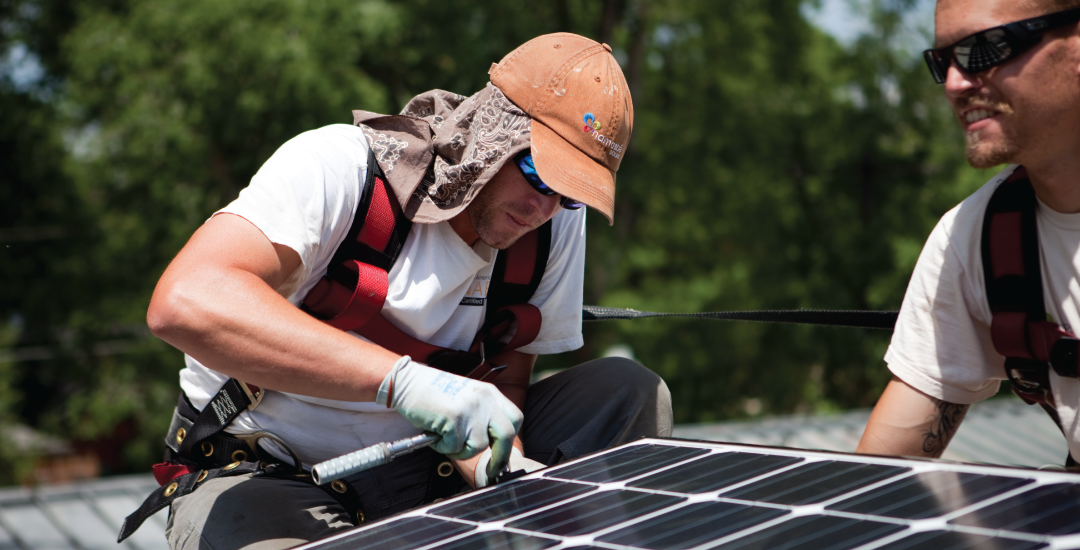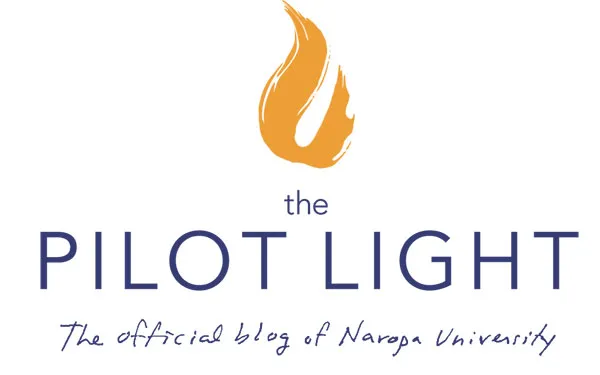
By Rivi Marcus, Sustainability Liaison & Michael Bauer, Director of Sustainability at Naropa University
“As light as air” is a phrase that is often used for conveying how lightweight something is, because, hey, air floats all around us! Now, consider that heating and lighting America’s buildings resulted in 1,646 million metric tons of greenhouse gas emissions in 2015. For perspective, that is 3,629,000,000,000 pounds. Of ‘air’. In other words, air not so light.
To do our part for climate justice and carbon neutrality, the Naropa Office for Sustainability has begun a new partnership with Colorado Carbon Fund (CCF) to offset the University’s greenhouse gas emissions from purchased electricity and natural gas on Naropa’s three campuses.
Naropa University has been supporting renewable energy since 1998, when we joined Xcel Energy’s Windsource program. Windsource allows customers to purchase Renewable Energy Credits (RECs) whose funds are used solely for wind energy production and development. As part of the university’s commitment to social and economic sustainability, the Office for Sustainability decided to collaborate with CCF, a local non-profit that supports business and individuals in providing tools to reduce greenhouse gas emissions within the state of Colorado. Instead of purchasing RECs, Naropa physically “retired” our emissions from purchased electricity and natural gas through CCF’s Larimer landfill methane capture project. Not only does this keep our dollars in Colorado, supporting the local economy, but also it supports local carbon drawdown efforts while physically balancing our building emissions.
In fact, Colorado Carbon Fund’s work impacts the local economy through a variety of mechanisms. Historically, CCF has developed methane capture and rooftop solar thermal projects. Recently, their largest impact comes from connecting individuals to carbon-beneficial projects throughout Colorado with their “Go Carbon Neutral” license plate program. This is a niche that provides nearly every adult Coloradoan with an easy way to reduce their net carbon emissions.

CCF holds “empowering individuals” as a core value and part of their larger vision. “We believe that providing a piece of the complex web of company culture through carbon reduction is an easy way to get an edge and make a real-world difference,” says CCF Program Director Brandon Welch. The license plate program helps grow the carbon drawdown industry by raising questions, providing real-world context, and an easy way for anyone with a vehicle to make a difference.
The Naropa Office for Sustainability is also collaborating with CCF in other innovative, embodied ways. We are in the planning stages of providing students and faculty with service learning and volunteer opportunities to engage with the land that supports us all, while connecting with local food producers and sequestering carbon in the soil. This latest effort supports farmers along the Front Range in transitioning to regenerative practices, often called ‘carbon-farming’. Carbon farming methods reduce greenhouse gas emissions from farming equipment while sequestering carbon in the local soil and vegetation. These land-management practices can cover small changes, like no-till cropping, stubble retention, and biochar amendments—or large changes like agroforestry or rotational grazing.
Taken together, practices like carbon farming can create and support a more resilient soil that rewards the farmer environmentally, culturally, and financially. As this work progresses, carbon farmers can sell a climate beneficial product that is free of agrochemicals, less labor intensive, and is Earth and heart-connected. These products can range from holistically managed beef and honey to consciously collected fibers from sheep. According to Welch, “Carbon farming is a great way to connect people with local carbon reduction projects that enable healthy soil, a happy farmer, sustainable food, and a powerful community.”
Currently, Naropa Sustainability is assessing local need and capacity, while structuring a network that integrates service into the appropriate curricula. Connecting, communicating and planning together, the Office for Sustainability will become a clearinghouse for volunteer, internship, and service-learning linkages. As a laboratory for radical innovation and practical action, we can be a leverage point for community alliances, so that each of us can live into deep community resilience.




